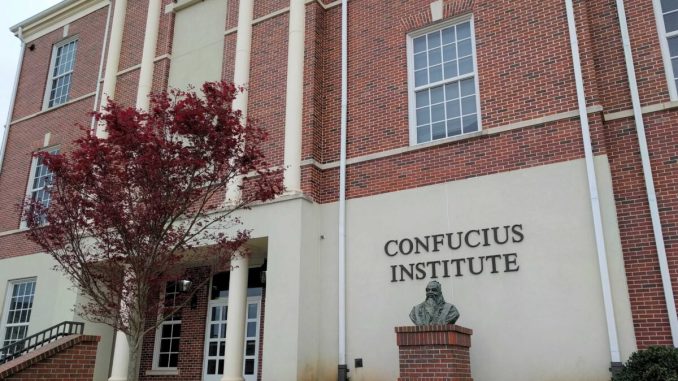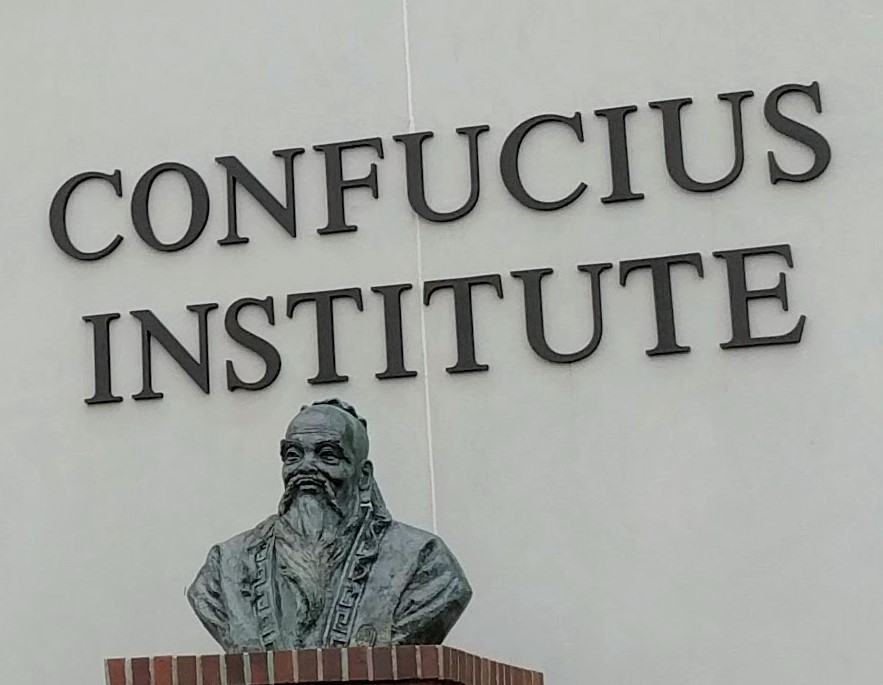
The director of China’s Confucius Institute (CI) at Carleton University claims his institute is independent of Beijing’s control, but stumbles over question about the Tiananmen Square Massacre committed by the regime in 1989.
“We don’t report anything to China. I report only to Canada, to Carleton University,” Justin Li told the Commons Committee on Canada-China Relations on Monday, when asked for the type of information CI at Carleton sends back to China.
Li said the institute receives funding from the head office in Beijing.
CIs, disguised as cultural and language programs at universities around the world, operate under the Chinese government agency Hanban, under its Ministry of Education. Besides espionage activities, they promote the CCP’s agenda, including censoring topics the regime deems sensitive such as the persecution of Falun Gong adherents, Uyghurs, and Tibetan Buddhists, and the Tiananmen Square Massacre.
Michel Juneau-Katsuya, an expert in national security and intelligence and former staff at the Canadian Security Intelligence Service (CSIS), told the committee on April 19 that the Chinese Communist Party (CCP) has created “front companies” in Canada to gather intelligence.
One of them, Juneau-Katsuya said, are CI’s, which function as “spy satellites” and conduct espionage work for the CCP.
But Beijing claims that CIs are only cultural and language programs.
Li, who’s been with the CI since April 2011, denied that, saying “our goal is to promote understanding, shared knowledge, especially human bonds between the people of Canada and people of China.”

Conservative MP Garnett Genuis pressed Li on his opinion of the Tiananmen Square Massacre.
“Based on your bio, you were living in China during the Tiananmen Square Massacre in 1989. The Chinese Red Cross estimates that over 2,500 students peacefully protesting were shot in cold blood. So as someone who today works with students at a university, do you believe that these figures are accurate? And do you think the Chinese state was wrong to sanction the opening of fire on peaceful protesters?”
“I am the employee for Carleton University. My employment is with Carleton, and I don’t think it’s anything to do with China,” Li replied.
Grilled to answer the questions, Li said he doesn’t have “this expertise and knowledge to validate the number of that instant.”
“You were living in China at the time Mr. Li, do you believe that it was wrong for the Chinese government to sanction the opening of fire on peaceful protesters in Tiananmen Square?” Genuis pressed.
“I was in China, I was in Beijing, and my friends and none of my acquaintances had been victim[s] so far,” Li said.

Former CSIS Diretor Richard Fadden, who also testified before the committee Monday, said Canadian politicians must remain vigilant to the activities conducted by CCP agents in Canada.
“They are very subtle, these activities. There’s no smoking gun,” said Fadden, who was former national security adviser to prime ministers Stephen Harper and Justin Trudeau. “The great difficulty here in Canada is that the general public has trouble understanding that we’re threatened.”
“We feel very comfortable here in North America,” Fadden added. “We got three oceans. We got a border with the U.S. Sometimes you have to face a crisis before you truly understand there’s a problem.”
When asked about the threat level the CCP poses to Canada’s economic, national security, and defence on a scale from one to 10, Fadden said “near eight.”
“That’s particularly the case because Chinese authorities are completely determined to advance their objectives no matter what we think.” He added, “they’re after us, if I can use the vernacular, from a whole variety of perspectives, and they’re after us in a negative sort of way.”
In order to deal with the CCP effectively, Fadden said Canada has to be coordinated internally and with its closest allies to have a chance when sovereignty is at stake.
“Our response needs to be the whole government at the level of the Government of Canada, and national at the level of the government of the country.”
And Canada’s reaction to the CCP can’t be limited to the CSIS, the Department of National Defence, and Global Affairs Canada, the former national security adviser said, but “must encompass all elements of the Government of Canada.”





Be the first to comment